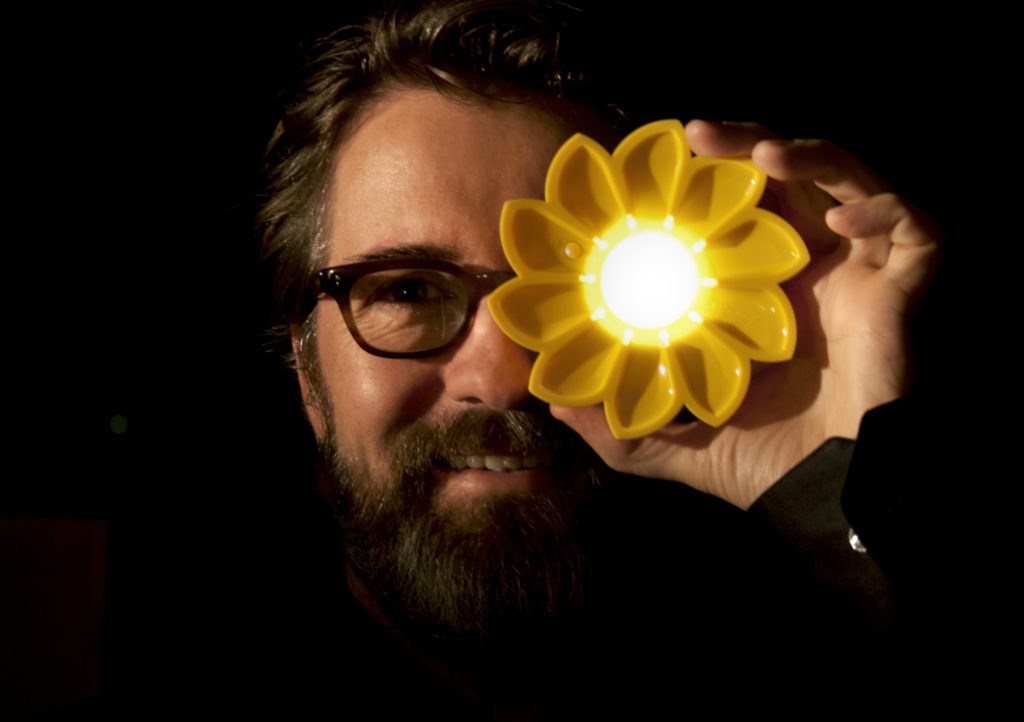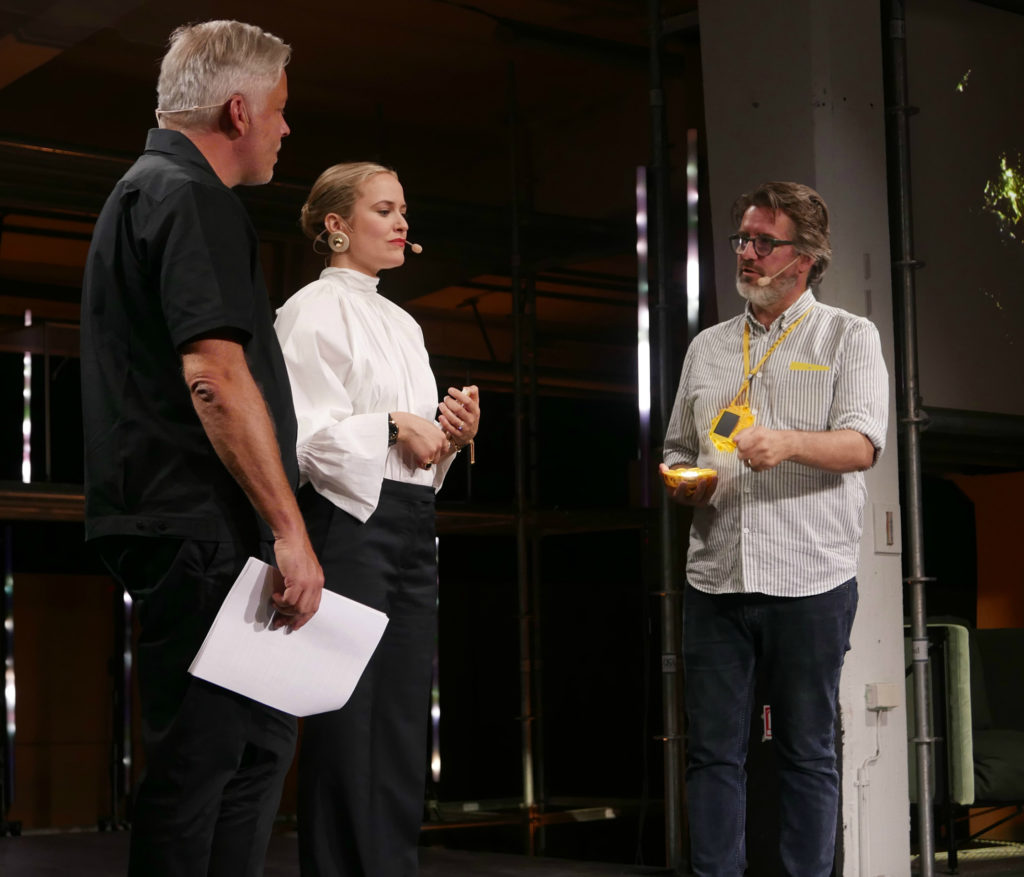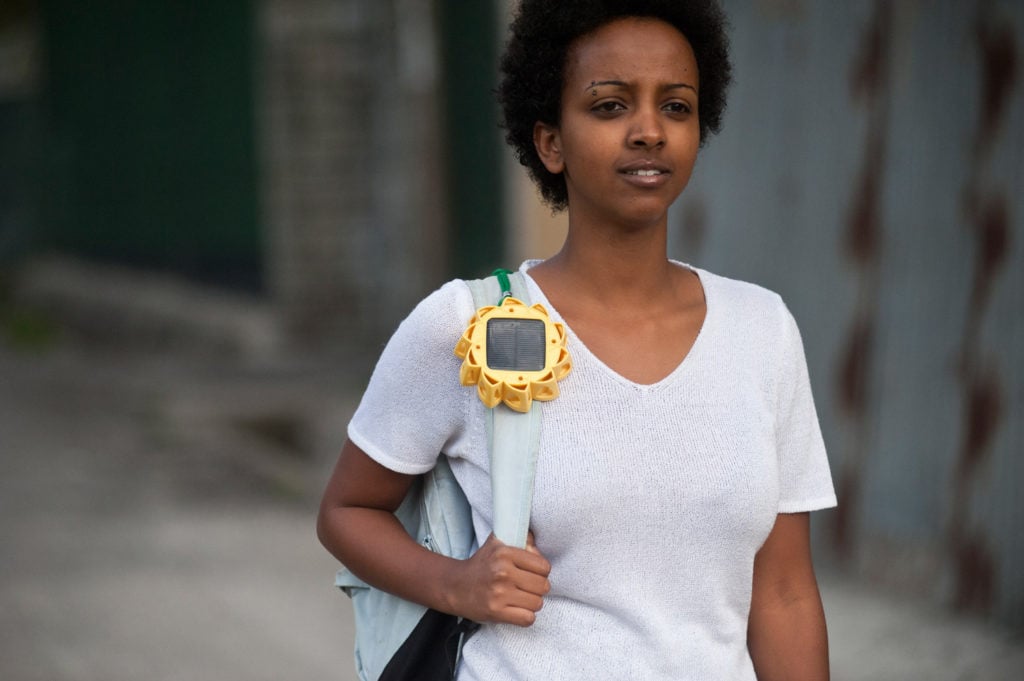Art World
Artist Olafur Eliasson’s Little Sun Is Teaming Up With Ikea on a New Line of Solar-Powered Products
As product research and development begins, the artist's work in Ethiopia could open Ikea's doors to young designers and artists in Africa.

As product research and development begins, the artist's work in Ethiopia could open Ikea's doors to young designers and artists in Africa.

Javier Pes

Olafur Eliasson’s Little Sun has big plans. The Danish-Icelandic artist and co-founder of the social enterprise has teamed up with Swedish furniture giant Ikea to research and develop a new line of solar-powered products for the home.
News of the partnership comes as something of a surprise for the boutique operation. After all, Little Sun, which Eliasson co-founded with the engineer Frederik Ottesen, rolled out its first product just five years ago: a bright yellow, solar-power torch which sold for $30 at Art Basel Miami Beach back in 2013. Since then, Little Sun has gone on to develop a solar-powered table lamp and a mobile phone charger aimed at the millions of people who live off the grid. Ikea, meanwhile, boasts some 300 stores in 40 countries and millions of on-grid customers around the world.

Olafur Eliasson at the launch of the Little Sun and Ikea partnership on June 8 in Sweden. Image courtesy Little Sun.
The Swedish company’s juggernaut size—and the product expertise that girds it—is exactly what made a partnership appealing.
“I was keen to use the scale and the knowledge Ikea has on product development to create a relationship with Little Sun,” Eliasson tells artnet News. “Little Sun is primarily working with off-grid solutions and it’s about people at the very bottom of the pyramid who do not have access to clean energy. But Little Sun is also about learning how to have a relationship with sustainable energy in the so-called on-grid world.”
Eliasson says that research and development on new products will begin right away. “We have not established exactly what Little Sun can develop with Ikea. We are starting the design process next week,” he says. But he anticipates “a small range of objects that are inspired by solar power or use it like Little Sun itself.”
According to the artist, Ikea approached Little Sun, in part, because the company saw potential in developing solar-powered devices for the home but also because it was interested in the Little Sun ethos of sustainability. “I have followed the investment Ikea has made in sustainable products and recycling materials,” he says. “I hope to see a collaboration where that can be pushed even further.”

Little Sun Original in Ethiopia, photo by Michael Tsegaye, courtesy Little Sun.
Eliasson’s own longstanding work in Ethiopia also played a role in attracting Ikea’s interest. “Ikea was curious that I teach at the university in Addis Ababa,” he says. The company is keen to get to know young artists and designers in Ethiopia and possibly develop other products with them, according to the artist.
Eliasson praised the work of the Ikea Foundation, a charity which helps children living in poverty gain better access to education, healthcare, and housing. He is also interested in how a company set up in a remote part of Sweden in 1947 became such a big design company and a leader in what it calls “design democratization.”
Of course, he is also a longstanding customer. The artist may typically make his own furniture, but he admits he’s bought plenty of Ikea’s kitchen products. “Growing up in Copenhagen you cannot avoid having a relationship with Ikea,” he says. “It is simply a part of everything.”